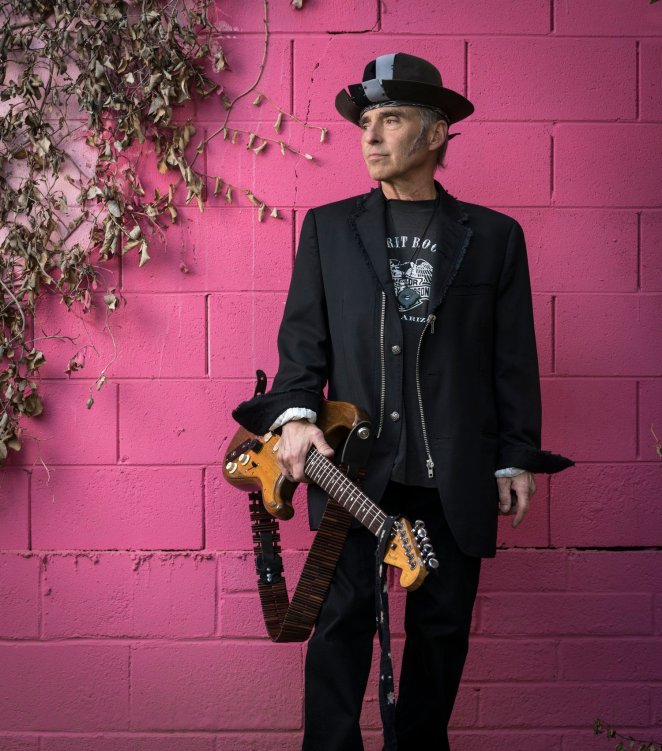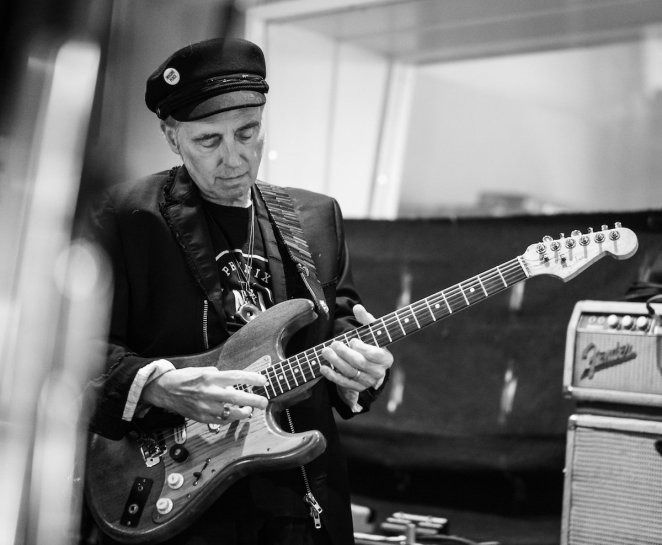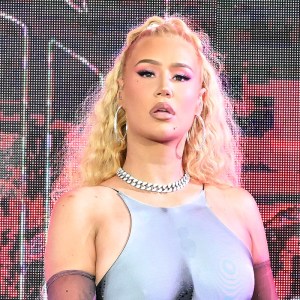When Nils Lofgren was 18, Neil Young asked him to play guitar and piano on his 1970 album, After the Gold Rush. The singer, songwriter, and guitarist had already been making some noise with his band Grin around the Washington, D.C. area and began doing double duty with Crazy Horse, appearing on the band’s self-titled 1971 debut.
Videos by American Songwriter
Once Grin disbanded in 1974, Lofgren kicked off his solo career with his self-titled debut in 1975, while continuing to record and tour with Young for his 1973 album, Tonight’s the Night and his 12th release, Trans, in 1983 before joining Bruce Springsteen and the E Street Band in 1984, where he has remained through the present.
Nearly 50 years after his debut in Crazy Horse, Lofgren joined the band again in 2018, along with Young, for their 2019 album Colorado, and follow-up, Barn, in 2021. In 2023, the band released All Roads Lead Home under the moniker Molina, Talbot, Lofgren, and Young.
Throughout his career, Lofgren’s collaborations have also spanned work with Willie Nelson, Lou Reed, Rod Stewart, Bog Seger, Stephen Stills, Lou Gramm, Jerry Lee Louis, and many others.
“I’m grateful to have a decent reputation as a guitarist, but I was drawn to rock and roll by The Beatles and the Stones and all their heroes like Muddy Waters and Little Richard,” said Lofgren in a previous statement. “For me, it’s always been about the songs.”
[RELATED: Nils Lofgren Details ‘Mountains’ Featuring David Crosby, Neil Young]
In between his Crazy Horse and E Street duties, Lofgren has continued expanding his own catalog with the addition of his 2023 album Mountains. Written and recorded at his home in Scottsdale, Arizona during the pandemic, the 10-track Mountains also features contributions from the late David Crosby and Lofgren’s Crazy Horse bandmate Neil Young, along with jazz bassist Ron Carter, and the Howard Gospel Choir.
Ringo Starr is also featured on Lofgren’s lead single “Ain’t the Truth Enough,” written in the wake of the January 6 attack at the U.S. Capitol in Washington, D.C. The song, which also features Cindy Mizelle, a backup singer for Bruce Springsteen and the E Street Band and member of the Seeger Sessions Band, “reckons with the ways that misinformation and demagoguery can tear families apart and silo us in our own realities,” according to Lofgren.
The album also features a tribute to late Rolling Stones drummer Charlie Watts, “Won’t Cry No More,” and another track Lofgren dedicated to his wife Amy, “Nothing’s Easy.”
In making the album, which was co-produced with his wife, Lofgren challenged himself to write every day and used it as an outlet to release his frustrations with the socio-political climate. “The album started as a form of therapy, but it very quickly grew beyond that,” added Lofgren. “It was so freeing to work without any restrictions, to just write whatever came out, and it turned into some of the most inspired work I think I’ve ever made.”
Lofgren recently spoke to American Songwriter about his ever-changing timelines as a songwriter, being a “free agent,” and moving Mountains.
American Songwriter: When you think back on your career, are you still the same songwriter now that you were back in, say, 1973?
Nils Lofgren: I think in general, the process is kind of the same, but I do feel a little more aware of the world and the planet. I have a little more experience, even though I can be very juvenile and gullible at times, but I also have more ease and confidence when it’s time to write, like “Hey, don’t worry about it. Just don’t wait until you’re inspired to write.” I might have 20 ideas in various stages like a jigsaw puzzle, and some I might chip away at for months, others for three days … or a long morning.
One of the nice things in the early ’90s, I went through a year and a half of legal hell to get off of a contract and get my freedom. And thanks to the internet starting to become a thing, I realized there are no great record deals for me, and I need to stay away from that now. Since the early’ 90s I’ve been kind of a free agent, which is so emotionally freeing.

AS: Your wife Amy has also been a key partner since you’ve been on your own. She’s done everything from selling merchandise, working on cover art, and producing your album. She even got a song off Mountains dedicated to her: “Nothin’s Easy (For Amy)” featuring Neil Young.
I’ve been on my own for the last 27 years with Amy, and I’ve learned as I’ve gotten older that when it comes to playing blues guitar, I have good taste. When it comes down to anything else, I’m a little suspect, so Amy is great with visuals and all that.
The record company thing, which I did from like ’68 or ’69, had a purpose for a while, and now it doesn’t. I’m really happy to have the freedom … and you just control everything. You finance it, but you control it all. Then, after the show you go sign some T-shirts or CDs. I’ll sign anything — an old ticket, an old Neil Young poster. It’s even more exciting when someone wants to buy your CD or your shirt.
AS: And then there’s the Mountains song, “Won’t Cry No More,” which you also wrote for Charlie Watts.
NL: That was devastating. I really expected Charlie Watts to stick around longer. It’s funny and sad, but on the last Tom Petty tour, Tom didn’t have a Phoenix date, so we treated ourselves and went to Red Rocks in Colorado and saw Tom Petty and the Heartbreakers — top band for me and Amy. It never entered our mind that it would be the last time we would see him. For weeks after Tom passed, we were cursing loudly in the house for weeks. It’s the same thing with Charlie. I was just not prepared for that. Without The Beatles and The Stones or Hendrix, I wouldn’t be here. There are many components of that, but those are the top groups. So I started writing this one riff and saying won’t cry no more, and of course, later in the song, I’m crying again. It was just like an expression of rage. Why do we have to keep losing people like that?
When I did the Tonight’s the Night [1973] album with Neil Young, there was all this flower power, and hippy-dippy, Southern rock, cool stuff going on in the 1960s, then all of a sudden it became very dark and ugly when all our friends and heroes started dying — [Janis] Joplin, [Crazy Horse guitarist] Danny Witten, Bruce Berry [roadie for Crosby, Stills, Nash & Young]. All of a sudden, everything got black and Neil, God bless him because none of us really had tools to cope with it other than being upset — we made this Tonight’s the Night, which we call The Wake album. The music and the madness kind of healed us through the grief and the rage. And thank God he did that, because man it got real dark when people started passing around us.
AS: You’ve released nearly three dozen releases since your debut (Nils Lofgren, 1975), but Mountains wasn’t necessarily about “getting an album out” since you began working on it during the pandemic. Was it more of a natural revelation?
NL: It was the first time I’ve been home for three years in my life. I had never been home for that long. I love being home with Amy and the dogs. Amy runs the whole ship, and the whole place, and takes care of our animals since I come and go a lot. About a year and a half ago, I realized that it’s not going to be safe to tour indefinitely. I had to do something professionally, and I started writing records. She [Amy] said “Just write a record. Whatever you’re feeling, just write it.”
So instead of writing three records and trying to figure out which one to release, I just wrote one album [Mountains] and shared it.
AS: Some people check out after 40 or 50 years. Why do you still love doing this?
NL: One of the big examples of what you speak of is some really great musicians, after about 10 to 15 years, they look at it and go, “This is a mad way to live. This is a crazy lifestyle. I have a family at home. And I love my family. I’m not doing this anymore, I’ll learn how to write jingles. I’ll play little clubs, I’ll find a job. I’m not living like this.” Then there are other people like myself, who after 15-20 years realize, “Yeah, you get tired of traveling.” If you’re lucky enough to have a great family, you get tired of leaving. But what happens is, there’s some overriding spiritual healing going on, playing on stage with a great band, or two people, or yourself, and delivering to a room of people. It can be 400 people in a packed club. You get some very powerful energy going back and forth, and you take the energy and the audience.
That’s a special kind of thing for all of us — and Bruce [Springsteen], Neil Young, and people like that. That’s why they’re still doing it because it’s something you can’t buy. It’s something you can’t get, unless you challenge yourself and walk in front of that audience with your songs and go, “Let me try to touch you and give you some emotional healing here that will linger. And maybe it’ll linger in your life.” That’s a very special thing, to feel like you’re doing and enjoy it. Otherwise, there’s no reason to be on the road for 55 years.

AS: It sounds like you’re still receiving those “spiritual” connections.
NL: It’s invigorating. It’s inspiring, and it’s affirming. I have a gift for putting notes together. That is not of my own making between my parents’ DNA. There is some kind of power for believing, and I got a gift from music I didn’t ask for. Just by working hard at it, I’ve done enough to have this beautiful career where you get to share things with people. But they also want you to keep growing, and keep getting better, and then they acknowledge that and throw the energy back at you. It’s a very beautiful, inspiring thing.
I miss home more than I ever did, but I’ll walk on stage more grateful and excited than I’ve ever been for the opportunity. It’s a beautiful, lovely thing that despite all the ups and downs, I haven’t lost sight of the gratitude for this gift I didn’t ask for, and the ultimate manifestation of that which is playing live.
You want who you came to see to really give it to you, to inspire you, and to do something special. And that’s a great expectation to know people are bringing to your show. whether it’s some huge venue with Neil Young or Bruce [Springsteen] or some little club, I feel it. And it’s exciting because if you deliver it’s just a spiritual healing gift for everybody onstage and in the audience.
I would probably feel like a tortured soul if I was touring after 55 years, and I didn’t feel that.
Photo: Rob DeMartin / Missing Piece Group
